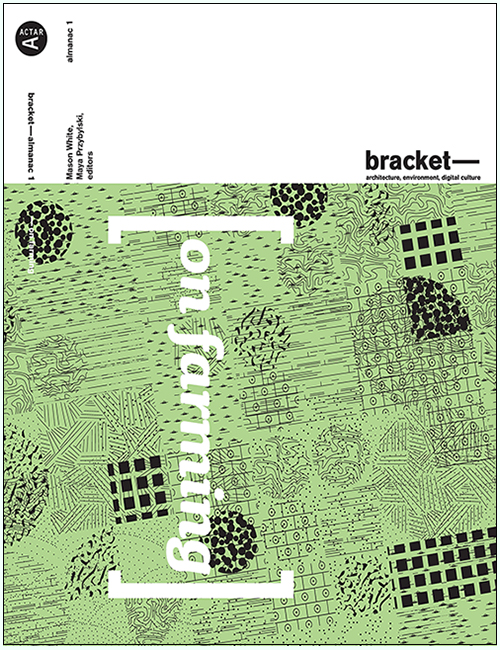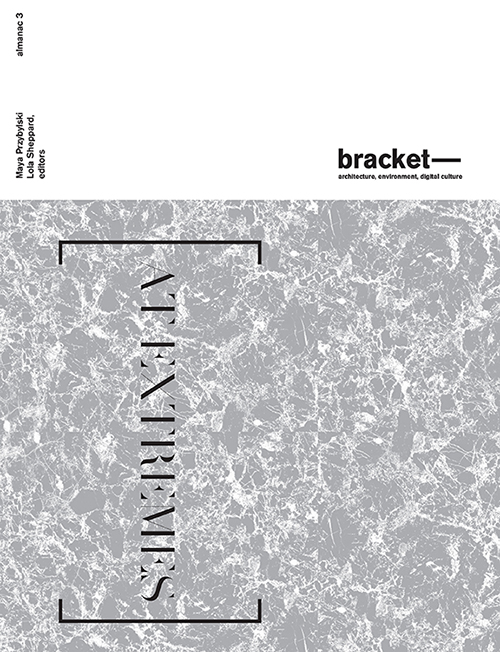

Bracket 1: On Farming
Mason White, Maya Przybylski
Bracket is a new book series that highlights emerging critical issues at the juncture of architecture, environment, and digital culture. It is a collaboration between InfraNet Lab and Archinect. Seeking new voices and design talent, Bracket is structured around an open call for entries. Conceived as an almanac, the series looks at emerging thematics in our global age that are shaping the built environment in radically significant, yet often unexpected ways. The series will chart the emergence of this current design generation. A generation raised when the internet was commonplace, when environmental issues reached a critical 'inconvenient truth,' and when the cultural capital of architecture was in need of new vision. The Bracket series will address the complex impacts of globalization on architecture, landscape, and urbanism. Bracket 1 is titled On Farming and looks at the capacity for architecture to address ideas and issues of productive landscapes

Bracket 3: At Extremes
Lola Sheppard & Maya Przybylski
This publication includes critical articles and unpublished design projects that investigate architecture, infrastructure and technology as they operate in conditions of imbalance, negotiate tipping points and test limit states.
We are conditioned, as designers of the built environment, towards the organization of people, programs and movement. Indeed the history of modern urbanism, architecture and building science has been predicated on an anti-entropic notion of programmatic and social order. But are there scenarios in which a state of extremity or imbalance is productive? Bracket [at extremes] seeks to understand what new spatial orders emerge in this liminal space. How might it be leveraged as an opportunity for invention? What are the limits of wilderness and control, of the natural and artificial, the real and the virtual? What new landscapes, networks, and urban models might emerge in the wake of destabilized economic, social and environmental conditions?
EBOOK VERSION
34,00€
Buy Ebook 

